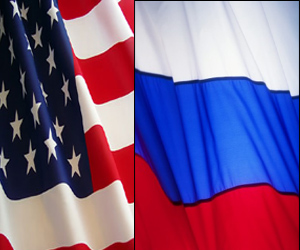Spy swapping being discussed by US and Russia
 The United States and Russia are discussing a swap of 10 accused Russian spies arrested in June for 10 people convicted of espionage in Russia, officials have revealed.
The United States and Russia are discussing a swap of 10 accused Russian spies arrested in June for 10 people convicted of espionage in Russia, officials have revealed.
The Los Angeles Times has reported that one of those apparently set to be released in Russia is Igor Sutyagin, a Russian scientist convicted of spying for the United States. His mother, Svetlana Sutyagina, said on Wednesday he has been taken to Moscow from a prison near the Arctic Circle and is to be taken to Vienna, and then to London, where the trade is to be made.
She said, "He was told that he and nine other prisoners will be exchanged for the 10 Russians recently arrested in the United States."
The New York Times has reported U. S. officials, speaking on condition of anonymity, confirmed Washington and Moscow were discussing a possible exchange but said it was not likely a final agreement would be reached on Wednesday.
Russian Foreign Intelligence Service spokesman Sergei Guskov told the Los Angeles Times, which also reported a U. S. Embassy spokesman declined to comment, "There will be no comments on the situation with the people detained in the United States."
The New York Times has said that people briefed on the discussions said the proposal could allow all U. S. defendants to plead guilty to either fewer charges or charges carrying lesser penalties or time served, which could result in deportations or agreements to allow them to return to Russia.
All 10 defendants in U. S. custody were charged with conspiring to act as unregistered agents of a foreign government. Eight also are charged with conspiring to commit money laundering and could be sentenced up to 25 years in prison if convicted. Another person is at large.
The New York Times further said that none of the defendants is accused of passing along classified information to their Russian handlers. A resolution of the case would let the U. S. government avoid a legal battle in which sensitive information about intelligence-gathering techniques could be exposed and could avoid a disturbance in U. S.-Russia relations. (With Inputs from Agencies)